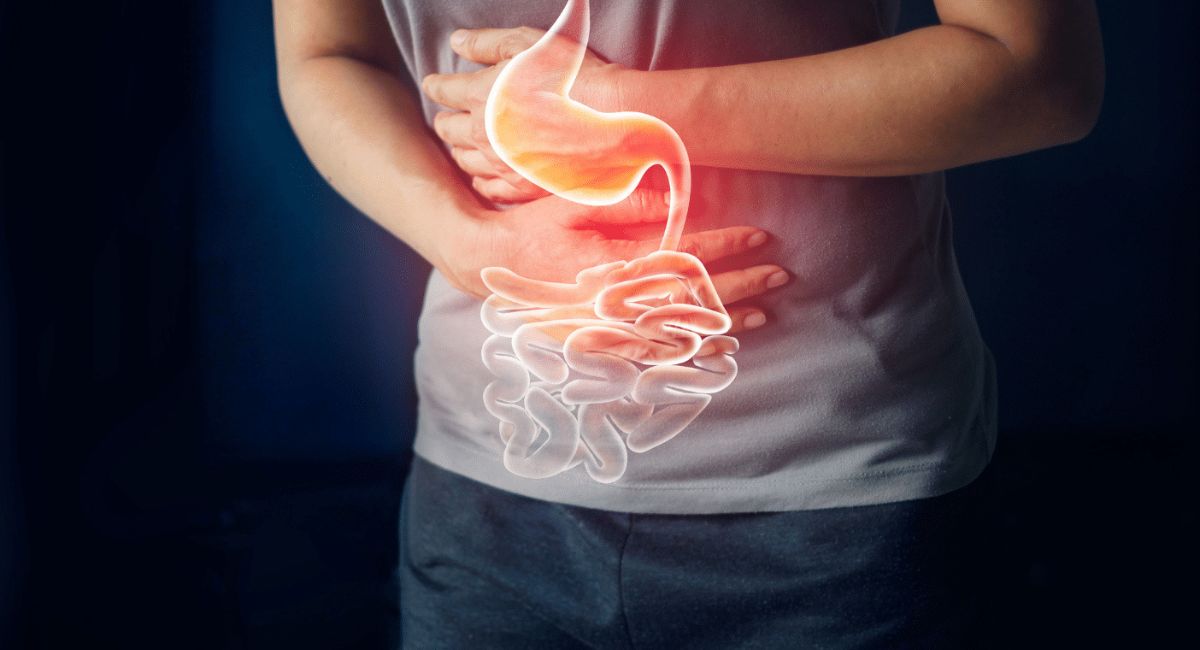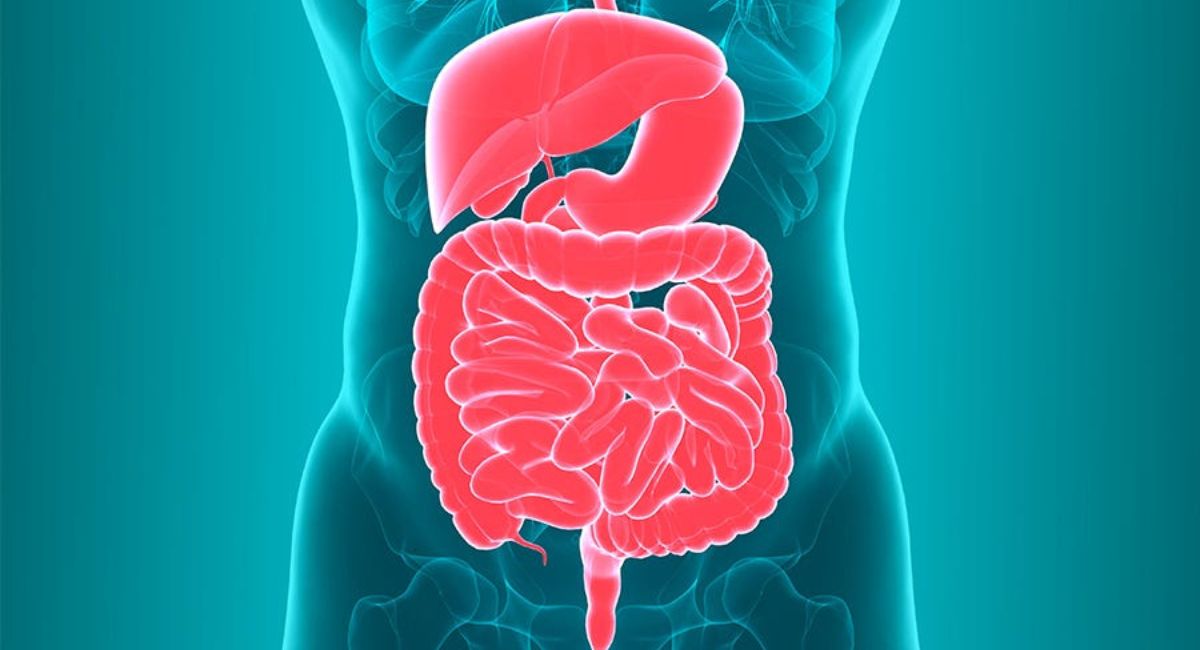Have you ever caught yourself feeling movement in the stomach and wondered what on earth is going on? It can feel like fluttering, tiny kicks, or rolling sensations you can’t explain. Many people panic, thinking something’s wrong, while others just feel confused or embarrassed to even ask about it. You’re not alone—this is a very common concern.
In this post, you’ll find clear answers about feeling movement in the stomach, why it happens, and what it could mean for your health. We’ll cover the most common causes, when to see a doctor, and simple tips to ease the sensations. By the end, you’ll understand your body better and know the next steps to take.
Understanding the Sensation of Movement in Your Stomach
You might notice your stomach moving, fluttering, or even feeling like waves of movement inside. That abdominal movement feeling often comes from digestive tract movement like gut peristalsis, which is the natural way your intestines push food along. When things are working normally, you may feel gentle gurgles or soft shifts, especially after eating or drinking.
In many cases, what seems strange is perfectly normal. For example, after a large, rich meal or something heavy in fiber, you might feel more gas and bloating. If you lie down, you may feel the movement more plainly. But if the sensations persist, cause discomfort, or come with other symptoms, then it might be time to investigate whether something else is causing the feeling.
Main Causes of Feeling Movement in the Stomach
Several issues can lead to you feeling movement in stomach continuously or occasionally. Irritable bowel syndrome (IBS) often causes sensitivity in the intestines so that digestive tract movement feels more intense than normal. Food intolerances or allergies (like lactose or gluten) raise the chance of gas, bloating, and odd shifts inside your belly. Hormonal changes also play a big role—especially for women during menstrual cycles or other hormonal shifts—because hormonal changes and gut health influence how your gut muscles move and how sensitive your nerves feel.
Another cause could be low-grade infections or parasite infection symptoms. These may irritate your intestines and make simple activities like digestion feel uncomfortable, twitchy, or even painful. Also, disorders of gastric motility, where the stomach doesn’t empty well or the intestines move too slowly or too quickly, can trigger feelings that resemble baby kicks feeling in stomach but not pregnant, though the cause is entirely different.

How Digestion and Gas Can Mimic “Baby Kick” Sensations
Digestion itself is a complex and dynamic process. Your stomach and intestines contract and relax to move food along—that’s gut peristalsis. When digestion speeds up or slows down abnormally, you may notice sensations of fluttering or movement. Gas trapped in digestive tract loops or pockets can press against intestinal walls or other organs, making movement feel more pronounced.
Some foods cause more gas than others — beans, carbonated drinks, cruciferous vegetables, heavy fiber meals. Also how fast you eat, drink, or even talk while eating can cause you to swallow air. The combination of air + movement means you might confuse these normal processes with more worrying signs. But usually these feelings ease once gas passes or after digestion finishes.
Stress, Anxiety, and the Gut–Brain Connection
Your brain and gut talk constantly through nerves, hormones, and chemical signals. When you’re anxious, your body makes stress hormones like cortisol, which can affect digestion. That can slow down or speed up how your stomach and intestines move. As a result, anxiety can trigger anxiety stomach sensations like fluttering, tingling, or even sensations similar to cramps.
Sometimes stress causes you to notice normal digestive noises or movements you’d otherwise ignore. If you feel a baby kicks feeling in stomach but not pregnant during a stressful moment, it might actually be your gut reacting to stress. Improving stress control, sleep, and emotional balance tends to reduce these sensations, because the gut–brain connection can swing either way—feelings affect digestion, digestion affects feelings.
Signs and Symptoms That May Indicate a Medical Issue
Most of the time, abdominal movement feeling or stomach fluttering sensation is harmless. But if you also have stomach cramps and pain, nausea and vomiting, or unexplained weight loss, those are warning lights. If you notice blood in your stool or changes in bowel habits—very loose or very hard stools—those add to concern.
Also if the movement feeling becomes constant, very intense, or disrupts sleep or eating, it may suggest something like Irritable bowel syndrome (IBS) or even more serious digestive diseases. Sometimes it could be a parasite infection, which may bring additional symptoms like fever or fatigue. You know your body best, so if symptoms persist or worsen, don’t ignore them.

When to See a Doctor About Abdominal Movement Sensations
You should see a healthcare provider if the feeling movement in stomach persists for more than a few days, comes with severe pain, or interrupts daily life. In the USA, a primary care doctor or a gastroenterologist can help you evaluate symptoms. They may ask about your diet, stress, and whether you’ve had any changes in weight.
Prepare for diagnostic tests like ultrasound for abdominal movement, stool tests, or blood work. Be sure to describe exactly what you feel, when it started, and whether things like food, stress, or hormonal changes seem to worsen it. Good communication helps doctors find the root cause faster.
Natural Remedies and Lifestyle Changes to Ease Stomach Movement
If your symptoms are mild, simple changes often help. You can prevent bloating naturally by eating slowly, avoiding carbonated drinks, limiting gas-causing foods, and drinking enough water. Regular exercise helps move gas and improves how your digestive muscles (gastric motility) work.
Using probiotics for digestive health might calm irritation and balance the gut flora. Mindfulness, deep breathing or meditation can ease anxiety stomach sensations. Resting, avoiding large heavy meals late at night, and maintaining smooth sleep cycles all benefit your gut. These natural steps often reduce the frequency or intensity of abdominal movement.
How Weight, Diet, and Hormonal Changes Affect Abdominal Sensations
Weight changes—especially sudden gain or loss—can stretch your abdomen or change how organs lie, which may amplify abdominal movement feeling. Diets high in processed foods, very spicy, or heavy in fiber without gradual increase can trigger more gas and stronger digestive tract movement. Hormones affect gut lining and nerve sensitivity: for example during menstrual cycles, pregnancy, or shifts in thyroid function you may become more aware of even small movements inside.
What you eat matters a lot. Balanced diets rich in fiber, lean proteins, healthy fats, and avoiding trigger foods help. Hormone balance via regular medical check-ups, sometimes supplements under doctor supervision, and managing conditions that affect hormones (like thyroid, menstrual irregularities) can lessen weird sensations or fluttering.
Diagnostic Tests and Treatment Options for Persistent Sensations
If your abdominal movement continues with symptoms that bother you, doctors may suggest diagnostic tests. An ultrasound for abdominal movement can show fluid buildup, structural issues, or organ enlargement. Endoscopy may check the lining of the stomach and intestines. Blood tests might look for infection, inflammation, parasites.
Treatment depends on cause. For Irritable bowel syndrome (IBS) doctors may prescribe dietary changes, medication to regulate gut motility, or drugs to reduce spasms. Infections or parasite issues might require antibiotics or antiparasitic drugs. If gastric motility is slowed (gastroparesis) specialized treatment, diet changes, small frequent meals, or in severe cases medicines or devices help.

Preventive Measures for a Healthy Digestive System
Maintaining a healthy digestive system helps reduce chances you notice odd movement or fluttering. Habit-forming good practices like eating regularly, chewing thoroughly, staying hydrated, exercising, and sleeping well support proper gastric motility. Checking food intolerances early helps too.
Also keep stress low through meditation, yoga, or relaxation techniques. Regular checkups with gastroenterology or gut health clinics if you have chronic issues make a difference. Avoid overuse of medications that irritate gut lining, and be mindful of hormonal shifts. All of these habits help your digestion stay balanced for the long run.
FAQs: What People Commonly Ask
Here are common questions, some niche, with straightforward answers.
Q: Is it normal to feel movement in stomach when you’re pregnant?
A: Yes. In pregnancy, you may feel your baby move (kicks, rolls). Also, hormones slow digestion, uterus grows, pressure shifts, and gut motility changes. But if you feel very painful or bleeding, see doctor.
Q: Why do I sometimes feel a pulsating sensation like heartbeat in my belly?
A: That can be the abdominal aorta (major artery pumping blood). Especially if you’re thin, lying in certain ways, or after exertion. It can also be related to high blood flow when anxious. Usually harmless, but if it’s strong, persistent, or accompanied by pain, get checked.
Q: Can anxiety or stress cause movement sensations in stomach?
A: Absolutely. Anxiety activates fight-or-flight: adrenaline and related hormones change blood flow, slow down some digestion while speeding up other parts, increase awareness of internal sensations. Many people describe “butterflies” or flutters before a stressful event.
Q: Might food intolerances cause these sensations?
A: Yes. For example, lactose intolerance, gluten sensitivity, or other carbohydrate malabsorption can lead to gas production in intestines, bloating, rumbling, movement-like sensations. Keeping a food journal helps.
Q: What distinguishes gastroparesis from normal digestion slowdowns?
A: Gastroparesis involves measurable delays in gastric emptying, often associated with nausea, feeling full quickly, sometimes vomiting, and bloating/distention. It’s more than just occasional fullness. Medical tests (gastric emptying studies) help diagnose.
Q: Could this be a sign of something serious like obstruction or cancer?
A: It’s rare, but yes — if accompanied by severe, persistent pain, swelling, weight loss, bleeding, night sweats or fever, you should see a doctor. Those kinds of sensations alone are usually not enough.
Q: Why are the sensations sometimes more noticeable at night or when lying down?
A: At night:
-
Body is quieter, distracting noises reduced → you notice internal sensations more.
-
Digestion slows down, gas may shift.
-
Lying down changes pressure on abdomen and organs.
Final Thoughts
Feeling movement in the stomach isn’t always scary. For many, it’s a normal result of digestive tract movement, gas, or occasional stress. A baby kicks feeling in stomach but not pregnant usually doesn’t mean pregnancy—it often means your gut is working and you’re paying attention.
Still, if you have stomach fluttering sensation with persistent pain, nausea and vomiting, or unexplained weight loss, it’s smart to get checked. Natural remedies, lifestyle changes, and doctor’s help can often solve the issue. Trust your body, but also don’t ignore the warning signs. You deserve to feel well.

